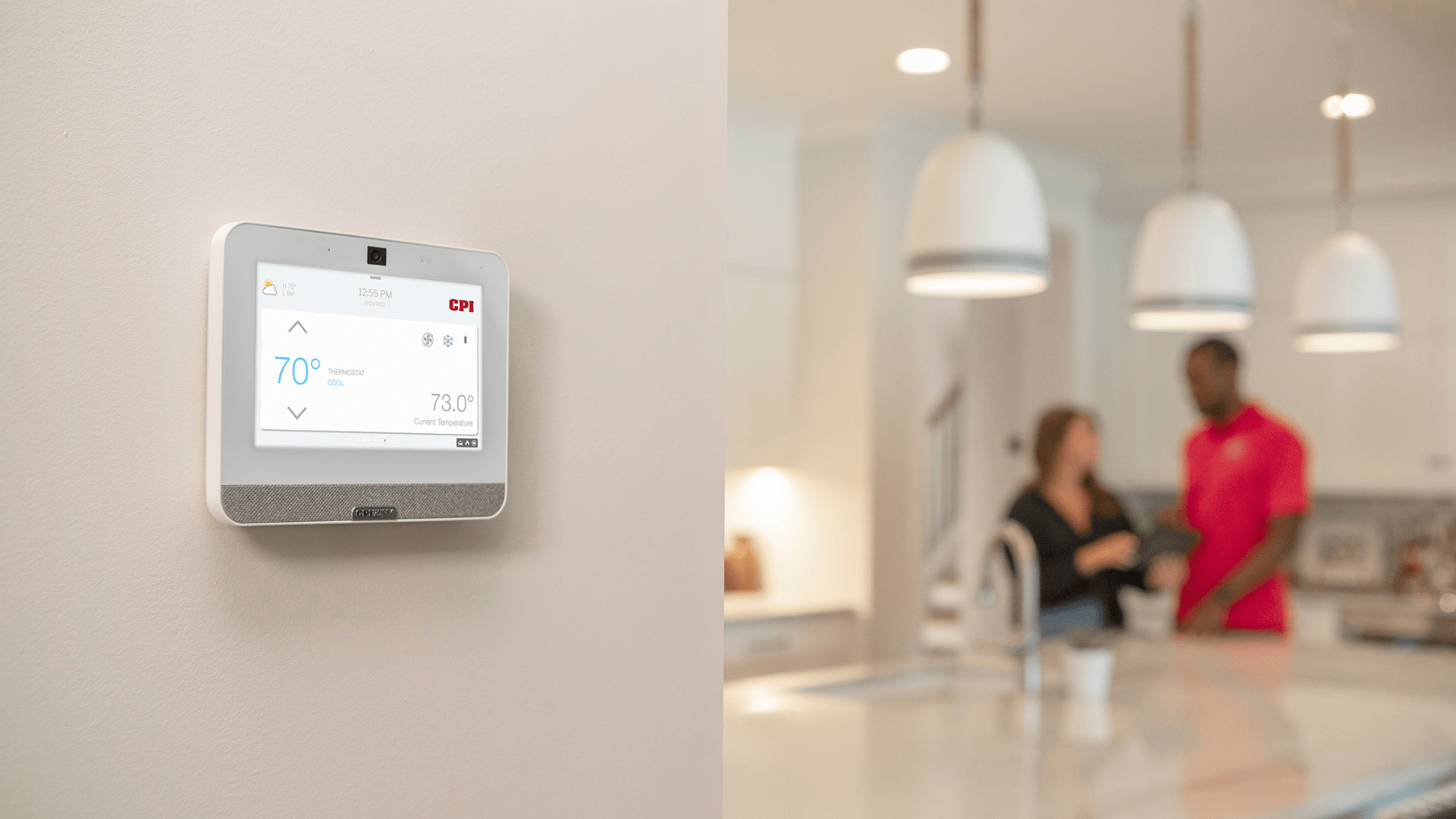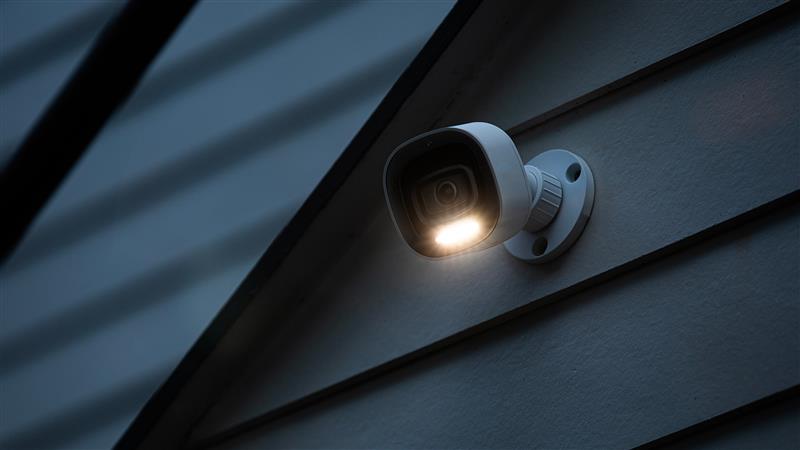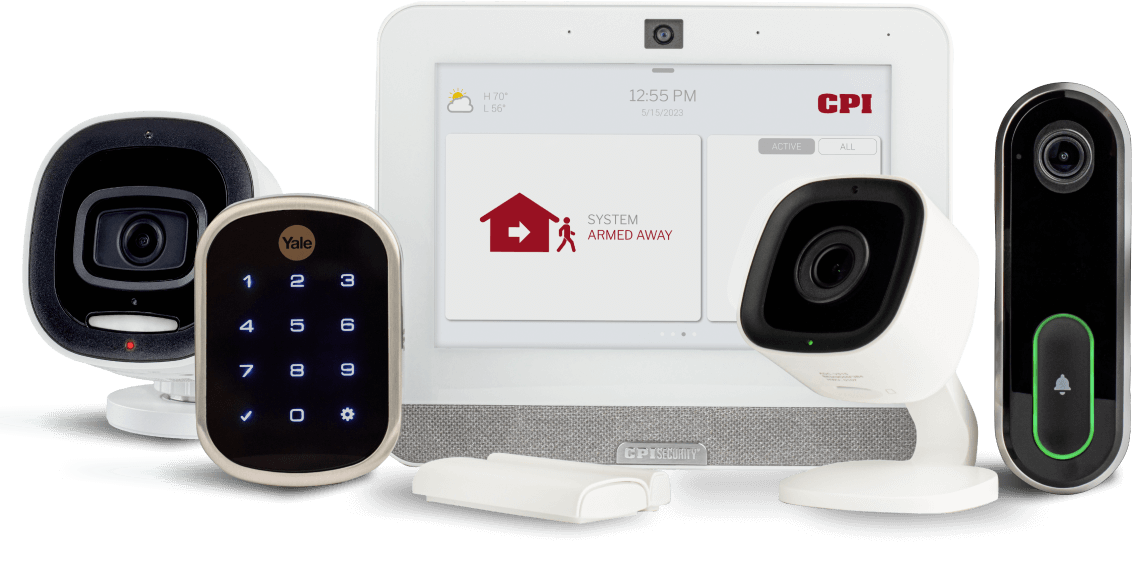So, you’re in the market for a home security system, but you don’t know whether to go with a wired or wireless security system. Not to worry! In this blog, we’ll explain the pros and cons of both wired and wireless security systems. The good news is, you really can’t go wrong with either option. Keep reading to learn the differences between wired and wireless security systems, so you’re equipped to make the best choice when protecting your home or business.
The Difference Between Wired and Wireless Security Systems
You can likely understand the biggest difference between a wired and wireless security system just by reading their names. Wired security systems require wiring or cables to communicate between the security system’s control panel and the rest of the home security devices, while wireless security systems communicate via radio waves.
Original home security systems are always wired, and many home security systems still communicate via wired systems today. In more recent years, the home security industry has begun to utilize more wireless home security systems. Whether you choose a wired security system, or a wireless security system is often based on personal preference or what’s best for the circumstances of your home or business. We’ll discuss the pros and cons of wireless vs. wired security systems, so you can make the best choice for your security needs.
Pros of Wired Security Systems
- Wired Security Systems can be installed by professionals or DIY. However, because wired security systems require running cables within the walls of your home or business, we recommend leaving it to professionals. You’ll often find the best wired security systems are professionally installed.
- If you have an electrical disturbance, wired security systems use a backup battery system so there is no disruption in service.
- Historically, wired security systems have been considered to be less susceptible to hackers. If you have a wired security camera system, the protection and privacy of your video devices and the rest of your security system is vital. While wired security systems are still considered to be the most stable communication, there have been significant advancements in protecting the integrity of wireless security systems. We’ll explain more under the Pros of Wireless Security Systems section of this blog.
Cons of Wired Security Systems
- Because wired security systems require running cables, they can be more complex and time-consuming to install.
- You may not be able to completely cover all wires, which can be less ascetically pleasing than a wireless security system.
- If you move, it can be time-consuming and difficult to remove the wired security system and take it with you. However, if you’re a CPI Security customer, you don’t have to worry about removing your home security system to take to your next house. CPI’s movers program, does all the hard work for you, so you can focus on everything else on your moving checklist.
Pros of a Wireless Security System
- Wireless security systems can be simpler to install since they do not require running wires or cables.
- Wireless security systems are a good option for renters who may not be able to run wires or cables behind walls.
- Wireless systems operate off batteries, so they can be installed in homes that do not have wires or electrical access.
- Historically, wireless security systems have been more susceptible to hackers, but advancements in technology have turned this con into a pro. For example, CPI uses fully encrypted two-way wireless communication between the security system panel and device, preventing hackers. In addition, CPI’s wireless security sensors feature channel-hopping technology, which allows the security system to move to less congested frequencies during communication transmission.
Cons of a Wireless Security System
- Wireless security systems rely on batteries to operate. While today’s batteries are long-lasting, you’ll need to change the batteries out when they run low, so you don’t experience a disruption in service.
CPI Bonus: CPI Security devices that run on batteries will notify you when the battery is low. So, there’s no need to worry about a disruption in service because you’ll always know to change the battery before it’s too late.
- Wireless sensors need to be within a certain range of the security system control panel to function.
How to Choose Between a Wired and Wireless Security System
While there are pros and cons to wired and wireless security systems, both can provide ample protection for your home or business. Because it can be difficult to choose which option is best for you, CPI recommends leaving it up to the professionals. CPI Security can help you choose the best wired or wireless home security system to fit your needs.
Bonus: Both wired and wireless security systems can be professionally monitored, in addition to being professionally installed. Contact us today to get a free quote!




